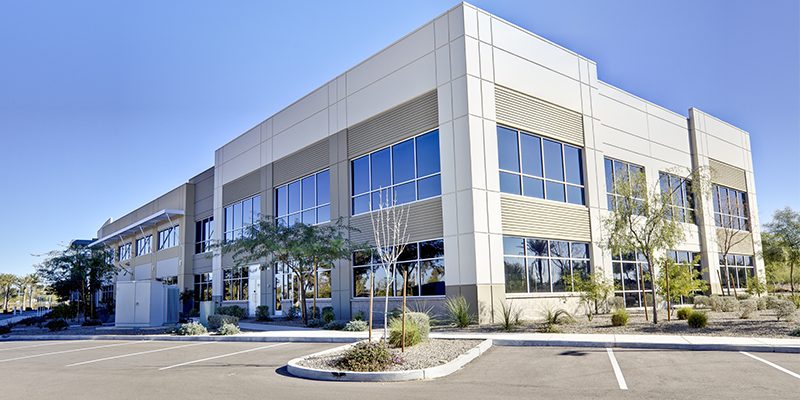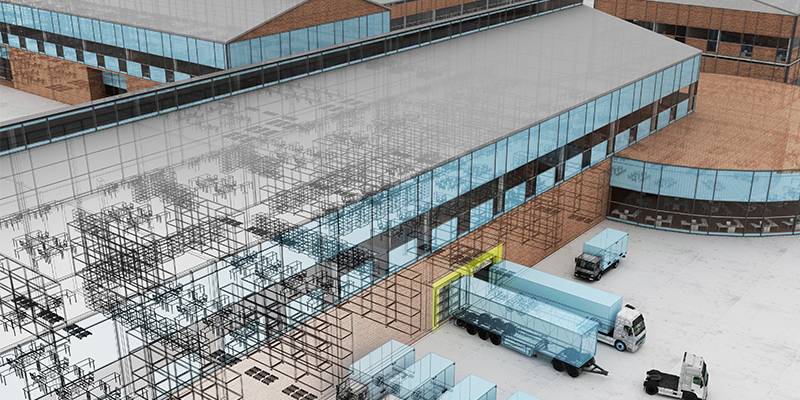
Read the full article here!
Buildings account for 39% of global greenhouse emissions — that could be an opportunity for investors
Investing in sustainable buildings could offer a real solution to reducing emissions in one of the world’s most polluting sectors, said Taronga Ventures, an investment firm focused on sustainable innovation and tech.
Buildings currently represent 39% of global greenhouse emissions, according to U.N. data. Almost one-third (28%) of the global total is the result of running buildings — referred to as operational emissions, while 11% comes from building materials and construction.
Read More

- Supply chain challenges
- Spikes in Rent and Demand
- Building Design and Location
- Predicting the Future
Read the full article here!
The U.S. House of Representatives and the Senate return this week in full from their summer recess, with congressional leaders rushing to meet critical deadlines to advance President Joe Biden’s “Build Back Better” legislative agenda. Prior to their return to Washington, D.C., members of several House committees had been meeting via teleconference to develop their individual pieces of a $3.5 trillion budget reconciliation package that, by rule, cannot be blocked by a Senate filibuster. Senate Democrats (including the two Independents that caucus with the Democrats) can pass the reconciliation bill without Republican votes, provided all 50 support the reconciliation measure. Last week, the House Ways and Means Committee advanced their portion of the bill containing revenue-raising measures that will be subject to further negotiations before a final bill is voted on by the House.
House Speaker Nancy Pelosi (D-CA) had originally promised progressives in the Democratic caucus that she would not hold a vote on a Senate-passed bipartisan infrastructure bill until work on the larger reconciliation bill was completed and accepted by Senate Democrats. However, a group of centrist and moderate Democrats led by Representative Josh Gottheimer (D-NJ) extracted a commitment from Speaker Pelosi to begin floor vote proceedings on the infrastructure bill on Sept. 27. In addition to the reconciliation package and the infrastructure bill, the House and Senate must also deal with legislation to raise the national debt limit, as well as passing a continuing resolution before Oct. 1 to fund the federal agency operations and prevent a government shutdown.
Read More
September Networking Social
A few spots left!
September 21 | 4:30pm – 6:00pm | Cordial
Next week’s social at SouthPark’s first rooftop bar is almost sold out! Enjoy some after-work beverages while catching up with friends and making new connections. This event is for NAIOP Charlotte members only. Limited space is available.
Thank You to Our Event Sponsor!

Read More
Originally published on September 1, 2021, by Marie Ruff for NAIOP News.
Commercial real estate professionals always seek to determine where markets stand now and what to expect for the future. That future is particularly uncertain today as we see the continued impacts of the COVID-19 pandemic.
Read More
Originally published on September 1, 2021, by Kathryn Hamilton for NAIOP Newsletter.
The term “supply chain” was coined on June 4, 1982, when the Financial Times published an article that used it as a replacement for “production and inventory management.” Now a permanent part of our lexicon, looking back at just how the supply chain has grown and changed over four decades is how a panel of industry leaders began their presentation at NAIOP’s I.CON West, held this week in Long Beach, California.
Read More
Originally published for NAIOP's Development Magazine Summer 2021 Issue by Trey Barrineau.
However, a lot of work remains despite tangible advances in recent years.
Women and minorities have made some progress in reaching the C-suite in commercial real estate investment management firms during the past few years, but the 2021 NAREIM Diversity & Inclusion Survey shows that there is still a lot of work to do.
Read More
Originally published on September 14, 2021, for NAIOP E-Newsletter.
The House Ways and Means Committee, chaired by Rep. Richie Neal (D-MA), will continue its committee markup this week of provisions to be included in the estimated $3.5 trillion reconciliation legislation to be considered by the House. The committee is conducting the markup remotely, as the full House is not scheduled to return until next week. The Senate returns this week, and Senate Majority Leader Charles Schumer (D-NY) has tasked Senate Democratic committee chairs with having their reconciliation bill language ready by Sept. 15.
Read More
Industrial Space Demand Remains Strong
Demand for industrial real estate continues to be strong as the long-term trend toward e-commerce (and away from in-store sales) continues with no end in sight. With nearly 100 million new square feet delivered nationally since the beginning of the year, 450 million square feet currently under construction and another 450 million planned, the demand for industrial real estate still outpaces supply.1
Because of this, authors Dr. Hany Guirguis and Dr. Michael Seiler forecast that the total net absorption in the second half of 2021 will be 162.6 million square feet with a quarterly average of 81.3 million square feet. In 2022, the projected net absorption is 334.6 million square feet with a quarterly average of 83.6 million square feet. An improvement in the outlook for the economy in 2021 and 2022 is behind the upward revision of the 2022 forecast. For example, the real GDP growth rate is now forecast to be 7% in 2021, above the previous forecast of 5% growth. As economic growth is projected to revert toward long-term growth rates in 2023, net absorption in the first half of the year is forecast to be 160.5 million square feet, for a quarterly average of 80.2 million square feet.
Download Report
Originally published on August 24, 2021, for NAIOP News.
Through his experience leading a turnaround as the former CEO of Prologis, Walt Rakowich realized leaders today must lean into timeless values and principles, but with a fresh perspective on the new and complex realities of our leadership climates. In a keynote address next week at I.CON West: The Industrial Conference, Rakowich will share advice on engaging your values and your organization with purpose and passion. Join the 700+ industrial real estate leaders planning to attend I.CON West next week in Long Beach.
Read More
September Networking Social
September 21 | 4:30pm – 6:00pm | Cordial
Network with NAIOP at SouthPark’s first rooftop bar! Enjoy some after-work beverages while catching up with friends and making new connections. This event is for NAIOP members only. Limited space is available.
Thank You to Our Event Sponsor!

Read More
Originally published on August 18, 2021, by Toby Burke for NAIOP.
The federal government has provided additional support for state and local governments in response to the COVID-19 pandemic. President Joe Biden signed the American Rescue Plan Act (ARP) into law on March 11, which established the Coronavirus State and Local Fiscal Recovery Funds. The new federal funds provide $350 billion to support state, local, territorial, and tribal governments in responding to the COVID-19 pandemic and spurring economic growth. These federal funds are a windfall for some governments that did not experience a fiscal shortfall, particularly at the state level.
Read More

#1) 2040 Comprehensive Plan - Next Steps with Councilmembers Renee' Johnson and Victoria Watlington

The first draft of the Unified Development Ordinance (UDO) is expected to be released to the public on or around October 4th. A recent presentation from Planning Staff to Charlotte’s Transportation, Planning, & Environment Committee contained the following:
Read More
Stairs on the Rise
Originally published by Shantala Weiss for NAIOP's Development Magazine.
Monumental stairs can inspire greater interaction, reduce energy costs, and improve employee health and fitness.
In the wake of COVID-19, workplaces are presented with a unique opportunity to shape corporate culture's future and use physical space to foster a sense of community and innovation that can’t be offered when working from home. Building elements that align with the goals of active, sustainable, and universal design have the potential to play a crucial role in post-pandemic commercial real estate.
Read More
Originally published by Rob Naso for NAIOP Development Magazine Summer 2021 Issue
A new framework for mitigating disease in the office focuses on air quality, changing behaviors and building occupant trust.
The COVID-19 pandemic has redefined the role that office landlords play in creating safe, healthy work environments. While most office workers packed up their laptops and headed home to ride out the pandemic, building owners and property managers had to pivot quickly to elevate safety measures for the essential workers who remained, in an environment with fast-changing public health guidelines. Now, they face the next stage of recovery — ensuring tenants feel comfortable returning to the workplace as vaccination rates increase.
Read More
Originally published by Hany Guirguis, Ph.D., Manhattan College and Michael J. Seiler, DBA, William & Mary in August 2021
Industrial Space Demand Remains Strong
Demand for industrial real estate continues to be strong as the long-term trend toward e-commerce (and away from in-store sales) continues with no end in sight. With nearly 100 million new square feet delivered nationally since the beginning of the year, 450 million square feet currently under construction, and another 450 million planned, the demand for industrial real estate still outpaces supply.1
Read More
Originally published on August 17, 2021 for NAIOP E-Newsletter.
The Senate last week passed the INVEST in America Act (H.R. 3684), a bipartisan infrastructure package that had been backed by the White House, by a vote of 69-30. The spirit of bipartisanship was short-lived, however, as Senate Democrats moved quickly to pass a $3.5 trillion budget resolution (S. Con. Res. 14) by a vote of 59-49, with all Republicans present voting in opposition. Adoption of a budget resolution is the first step in developing budget reconciliation legislation that could pass the Senate with a simple majority and not be subject to a Senate filibuster that would require 60 votes to overcome. Senate Democrats, who control 50 votes, can pass legislation since Vice President Kamala Harris casts the tie-breaking vote under the U.S. Constitution.
Read More
One Tournament Sponsorship Opportunity Left!
 There is one opportunity left to participate in CRCBR/NAIOP Charlotte’s annual golf tournament that will be held on September 27 at Carolina Golf Club!
There is one opportunity left to participate in CRCBR/NAIOP Charlotte’s annual golf tournament that will be held on September 27 at Carolina Golf Club!
Make plans to join us as the Longest Drive Contest (Female) sponsor to get your company name in front of developers and brokers and catch up with your industry peers at this fun and valuable event! This opportunity includes player registrations.
Sponsorship opportunities are available on a first-come, first-served basis.
At this time, player spots are only available through sponsorship of the tournament.









